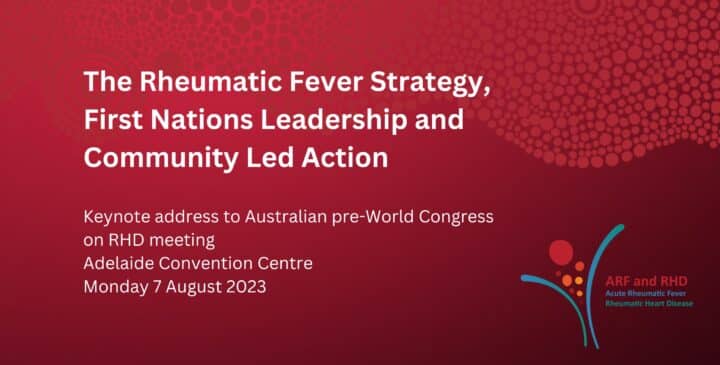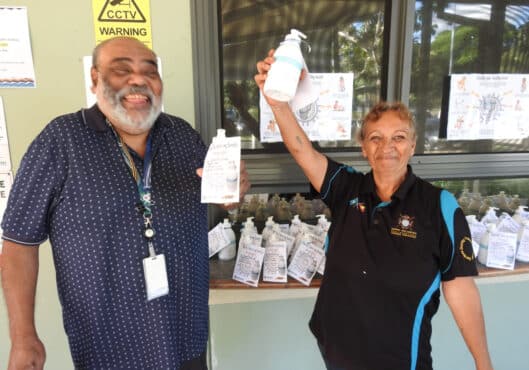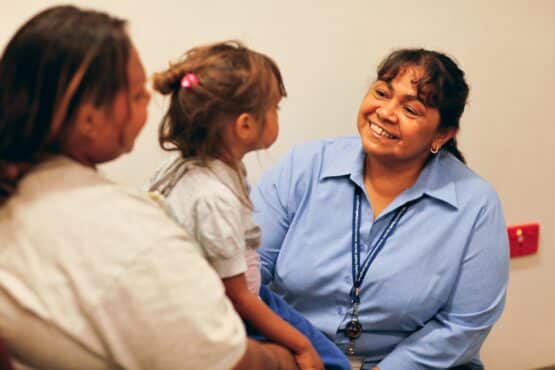

New advice to help stop early heart attacks for Indigenous Australians
To combat high risk of heart attack and strokes, Aboriginal and Torres Strait Islander people should have had their heart checked by a GP by age 18 at the latest, according to new national recommendations.
As part of a regular health check with a GP, the recommendations launched today have moved the age Indigenous people should get screened for Cardiovascular Disease (CVD) down from 35 to 18. Based on research from The Australian National University (ANU), a host of health professionals and Aboriginal and Torres Strait Islander CVD experts have agreed on the latest efforts to continue closing the gap on early heart attacks among Indigenous Australians. “We have seen great improvements in CVD prevention and this was highlighted in this year’s Closing the Gap speech,” said ANU lead researcher, Dr Jason Agostino.
“However, it remains a leading cause of preventable death in Aboriginal and Torres Strait Islander peoples. We need to be doing all we can to prevent it.
“Just about every Aboriginal person I know has a family member or a community member who’s died young from a heart attack or stroke. We need to change that.
“We can improve things by picking up conditions like diabetes and kidney disease early and starting conversations about treatment.”
In the last 20 years, the rate of deaths from heart attacks and strokes among Aboriginal and Torres Strait Islanders peoples have almost halved.
However, three out of four Aboriginal and Torres Strait Islander adults under 35 have at least one CVD risk factor.
Rheumatic Heart Disease Australia’s Senior Cultural Advisor, Vicki Wade, is a 62-year-old cardiac nurse who has heart disease. She said it is important to remind community and health workers about the risks of CVD.
“Although rates have improved, the statistics are frightening. We have generations of Aboriginal people who are not seeing their grandchildren growing up because of heart attack and stroke,” Mrs Wade said.
“This is a chance for local solutions, community engagement and health workers to be educated.”
The Chair of the National Aboriginal Community Controlled Health Organisation, Donnell Mills, said: ““This is a great step in reducing the burden of cardiovascular disease in Aboriginal and Torres Strait Islander people.”
“Our people have greater rates of heart disease and screening from a younger age will contribute to longer healthier lives. NACCHO encourages all Aboriginal Community Controlled Health Organisations to implement the new guidelines in their practices.”
Fellow author, Heart Foundation Chief Medical Adviser, cardiologist Professor Garry Jennings, said: “Evidence shows that Indigenous Australians have CVD risk factors like diabetes, high blood pressure and high cholesterol at a young age. We need to prevent, identify and treat these.”
Aboriginal and Torres Strait Islanders should now undergo CVD risk factor screening from 18 years, at the latest, and use Australian CVD risk calculators from age 30.
“It’s easy to do. The assessment involves the normal parts of a health check with a blood and urine test. It is quick and can be done by your local GP,” said Dr Agostino.
“For the vast majority it will be bulk-billed and free.”
The move is backed by the Royal Australian College of General Practitioners, the National Aboriginal Community Controlled Health Organisation, The Australian Chronic Disease Prevention Alliance, and the Editorial Committee for Remote Primary Health Care Manuals.
“This is about getting consistency everywhere. This is what Aboriginal and Torres Strait Islander leaders and the evidence is telling us we should do,” Dr Agostino said.
“Many GPs are already screening as early as 15 but some GPs and nurses don’t know about the need to test early.
“This is about doing what we can to pick up risk factors early and close the gap on early heart attacks and strokes.”
RACGP Aboriginal and Torres Strait Islander Health Chair, Associate Professor Peter O’Mara welcomed the new recommendations, saying they could make a real difference in improving health outcomes for Aboriginal and Torres Strait Islander peoples.
“We cannot hope to close the gap without making evidence-based changes – these new recommendations are a positive step to improving early detection and treatment of CVD.
“The RACGP has over 40,000 members, including 10,000 members in the faculty of Aboriginal and Torres Strait Islander health. While many GPs know about early screening not all do. These new recommendations will help spread awareness among GPs, improving access to early screening and quality care.”
Under the new recommendations, young adults with type 2 diabetes and microalbuminuria, kidney disease, and very high blood pressure or high cholesterol will be identified as high-risk of CVD.
The guidelines and research are published in The Medical Journal of Australia.
FOR INTERVIEW:
Dr Jason Agostino
Lecturer in general practice
ANU College of Health and Medicine
M: 0438659544
Vicki Wade
Rheumatic Heart Disease Australia’s Senior Cultural Advisor, Senior Cultural Advisor RHDAustralia
M: 0401413763
Professor Garry Jennings
Heart Foundation Chief Medical Adviser
Fleur Jacobs – Senior National Media Advisor
Fleur.Jacobs@heartfoundation.org.au
03 9321 1536
0427 591 638
For media assistance, contact the ANU Media Team on +61 2 6125 7979 or at media@anu.edu.au

